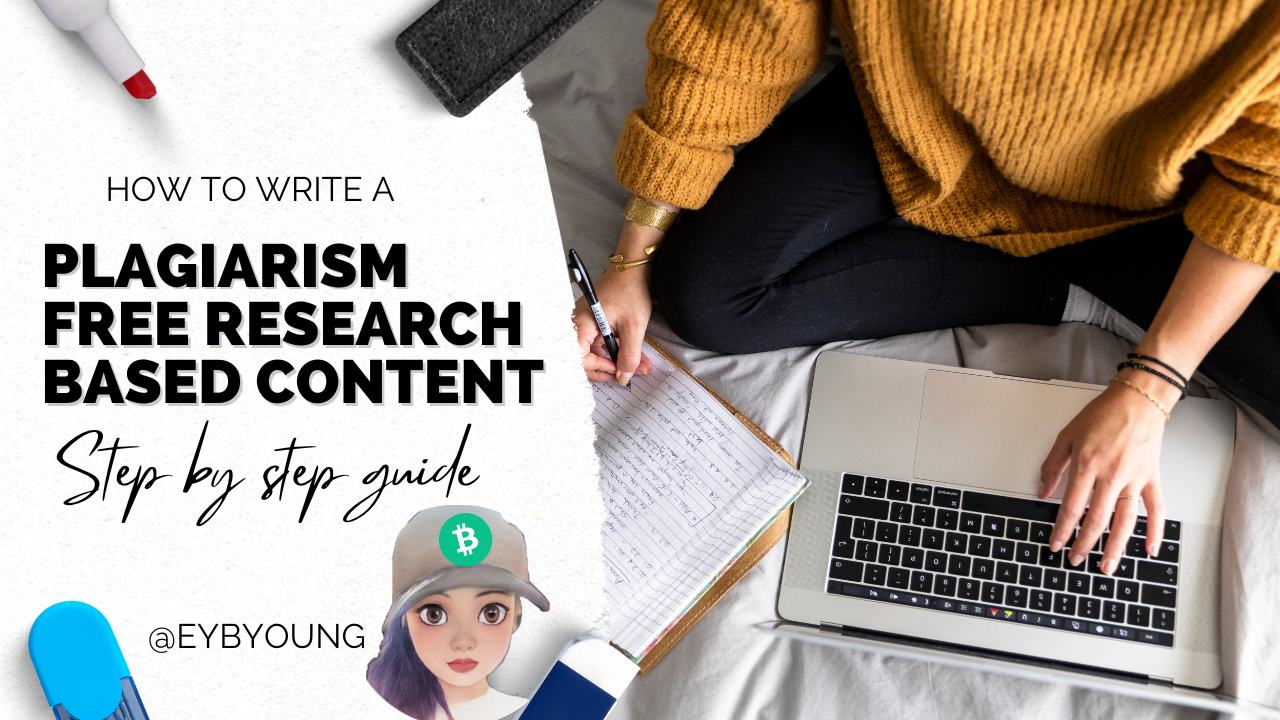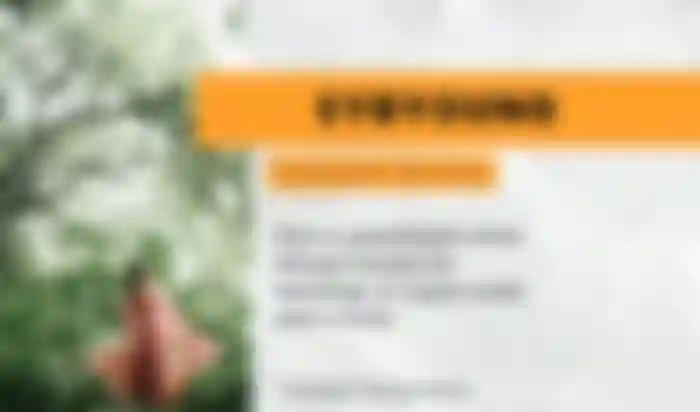How To Write 100% Plagiarism-Free Research-Based Contents

Writing is never easy, especially if you are zero knowledge about the topic. How can you construct 1000-1500 words if you don't know the subject? The answer is to do your research. Google is your friend who can give you the details you need to start crafting your piece.
I've been doing a lot of research on the topic given to me; crafting 100% plagiarism-free content with 1000 words, or more is challenging, but I love it. I always love learning, even if it's tiring. I love what I do. Sitting down in front of a computer to do work rather than do manual labor, such as in the field, is not my thing.
Techniques How To Write 100% Plagiarism-Free Content
Some of you know I am venturing my time to be a professional writer, and if you want to learn how I do it, I'll share my techniques. I always love to share what I learned; who knows, it can also help someone who aspires to be a professional writer.
Ways to craft 100% plagiarism-free research-based content:
Get a topic
Do research
Select relevant sites or links that can support details on your content
Read all your selected content
Make an outline
Start writing your draft
Use Grammarly to check errors
Scan your content in the Plagiarism checker
That's how I craft research-based content; I don't write right away, especially if I don't know the topic, to avoid misleading information.
Get a Topic
If you are writing for a client, they will give you the topic, but if you want to practice, you can find some interesting topics on Google, such as questions. Most people are looking for answers using Google. Just pick some of the questions that might interest you.
Do Research
Once you have the topic, type it in the Google search bar. You will find thousands of links that will provide details of your chosen subject. It is according to the SEO rankings, not because it ranks on top; you will select it immediately. You must read the content if it's relevant to your topic. Some links appear just because you hit the keywords they used, but the information inside the content might not apply to your topic.
Select Relevant Sites or Links that can Support Details on Your Topic

As I've said, thousands of links will appear upon your search; to filter relevant information that you need, select the best sites or links that support details of your topic. It would be best if you chose authoritative sites, which means those sites have the highest authority to provide factual information.
Just like the photo above, it's an example of my current chosen topic. I gathered 10 source links to create 1400 words that were 100% unique and scanned via the Grammarly business account.
Read All Your Selected Content
You must read the content thoroughly and get ideas from it. Do not copy and paste, or your content will have plagiarism issues. The best technique for this is to copy and paste a specific paragraph with the most relevant information you need and understand. Then, write it according to your understanding. Make it unique, don't copy the wordings it is considered spinning content. You must write it according to your words without changing the whole ideas.
Make an Outline
Before you start writing, outline first.
Into paragraph
The answer to the question on your topic (do not discuss everything, make it short but
concise)
Body of the topic (this is where you discuss everything)
You can add additional questions (Make use of the "People also ask" in Google)
Your final words or conclusions
That's how you outline your content, so it has an organized flow.
Start Writing Your Draft
After outlining, start writing your draft. Making an into a paragraph is sometimes challenging. Still, once you start writing, most of the time, everything will follow as long as you follow your outline correctly in making your intro paragraph; make sure that it reflects your topic and convinces your readers that you've done the research for them.
Use Grammarly to Check Errors
Use Grammarly or any platform that can help you polish your content. It will help you check your spelling, typos, and punctuation errors. It will also give some suggestions for words or a rewrite for clarity if you are in a premium account.
In writing, you can't be a genius who will have error-free content; you need Grammarly or another platform to help you polish your content. Don't be someone who laughs, seeing you have many errors! Ignorant bitch! Grammarly won't laugh at you; that's a promise, LOL!
Every writer needs Grammarly and many companies recommend writers must use it.
Scan Your Content in The Plagiarism Checker
Once you're done writing, scan it on a plagiarism scanner. How will you know it's 100% unique if you don't check it right? Free plagiarism checkers will do, but premium accounts will do better for better results.
Final Words
Writing research-based topics sounds complicated, but you will be fine once you get the hang of it. It can unleash a professional writer in you.
If you want to improve yourself, keep learning even if others will laugh or do not believe in you. You can see some of my work and check it out here.
Image are mine and some created in Canva.



Thanks a lot because I’m sure this information because it’s very useful even though it is sometimes researching takes a lot of one’s time